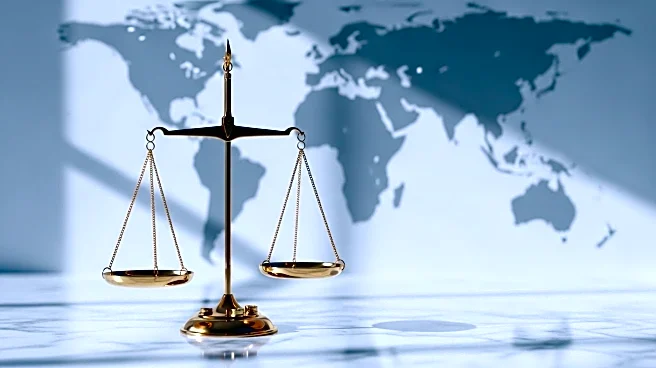What's Happening?
Human Rights Watch has reported that 89 foreign nationals are currently imprisoned in Venezuela, including individuals from Colombia, Spain, Argentina, France, and the Czech Republic. These detentions have intensified following Venezuela's controversial presidential election in 2024, which many countries, including the United States, did not recognize. The U.S. has increased military presence in the southern Caribbean, conducting anti-narcotics operations that Venezuelan President Nicolás Maduro perceives as a potential threat. The Venezuelan government accuses these foreign prisoners of plotting against Maduro, but human rights groups argue they are mostly tourists, business people, and humanitarian workers. The situation has created significant emotional distress for the families of those detained, as they face uncertainty regarding their loved ones' fate.
Why It's Important?
The detention of foreign nationals in Venezuela is a critical issue affecting international relations and human rights. The U.S. and other countries have condemned the electoral fraud in Venezuela, leading to increased tensions and diplomatic challenges. The detentions are seen as a tactic by the Maduro regime to leverage international negotiations, potentially impacting foreign policy and humanitarian efforts. The situation underscores the risks faced by foreign nationals in Venezuela and highlights the broader implications of political isolation and economic sanctions on the country. The ongoing military presence by the U.S. in the region further complicates diplomatic efforts and raises concerns about potential escalation.
What's Next?
The future of the detained foreign nationals remains uncertain as diplomatic efforts continue. The U.S. military presence in the Caribbean could lead to increased pressure on the Maduro regime, potentially influencing the release of prisoners. However, this could also result in prolonged detentions if the Venezuelan government uses the prisoners as bargaining chips. Human rights organizations are advocating for alternative pressure tactics that do not involve direct negotiations with the Maduro regime. The situation may prompt countries to issue travel warnings and reconsider their diplomatic strategies with Venezuela.
Beyond the Headlines
The detentions in Venezuela highlight the ethical and legal challenges of dealing with authoritarian regimes. The use of foreign nationals as leverage in international negotiations raises questions about the protection of human rights and the responsibilities of governments to their citizens abroad. The situation may lead to long-term shifts in how countries engage with Venezuela, potentially affecting trade, security cooperation, and humanitarian aid. The emotional toll on families and the broader implications for international diplomacy underscore the complexity of resolving such crises.









